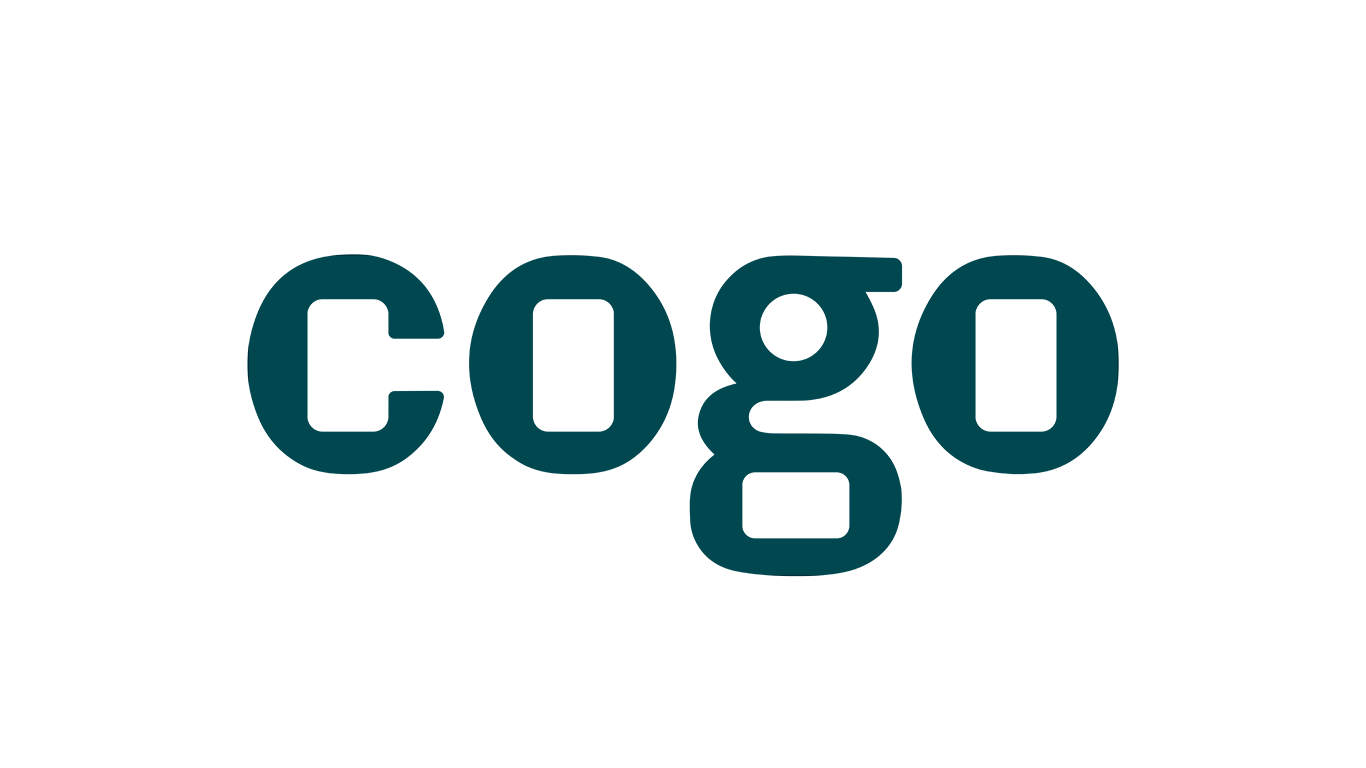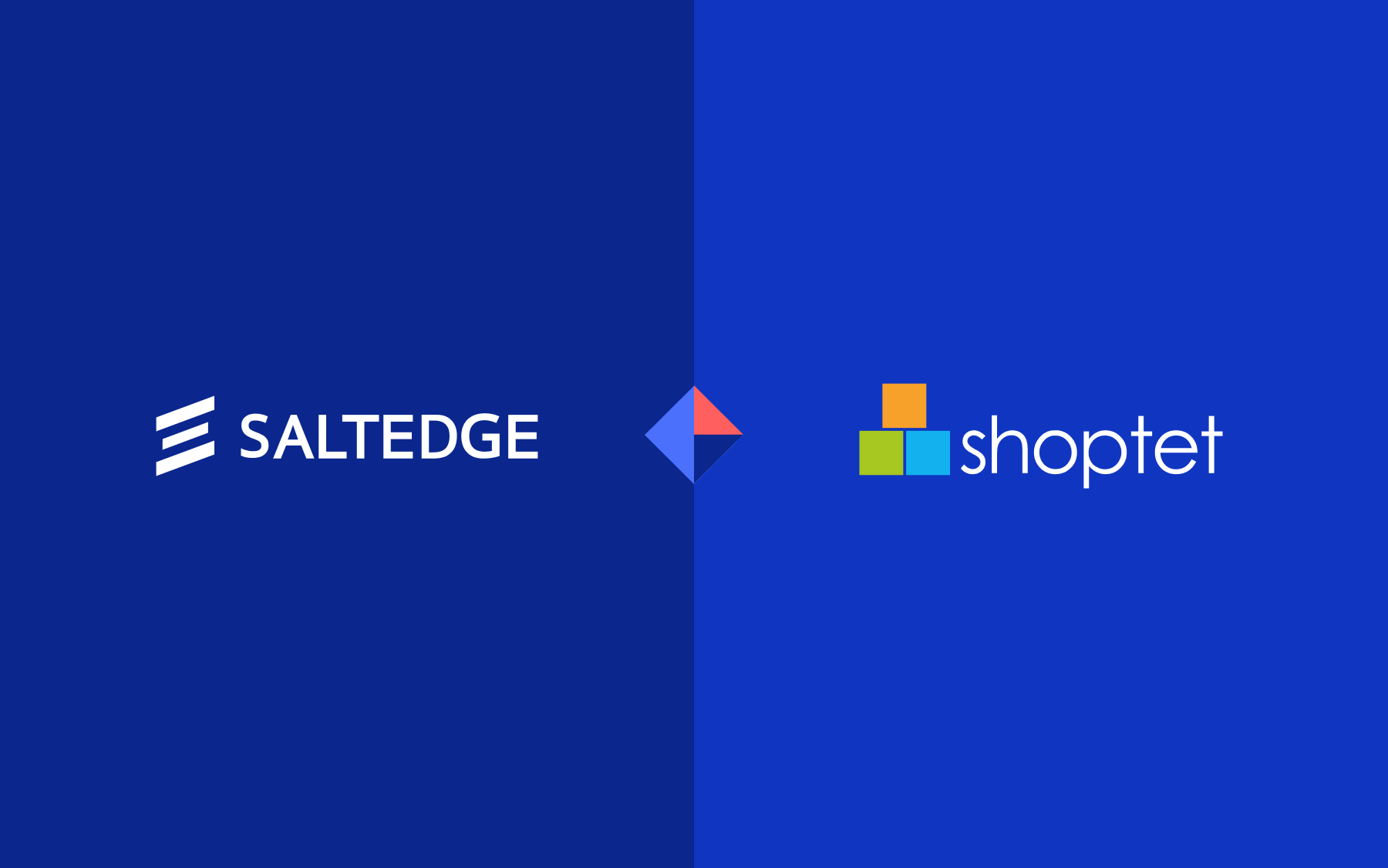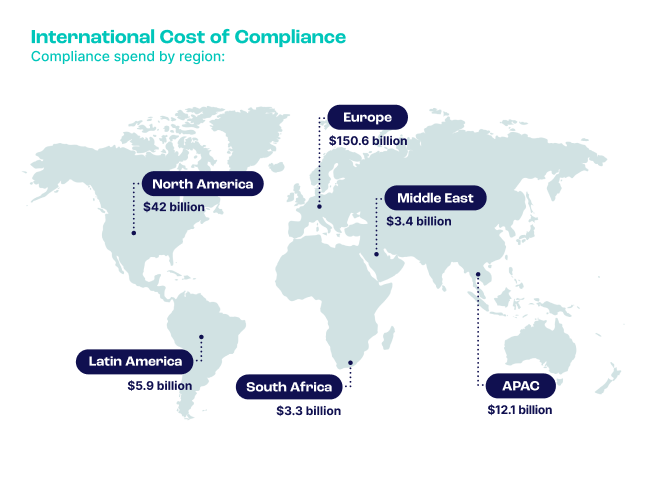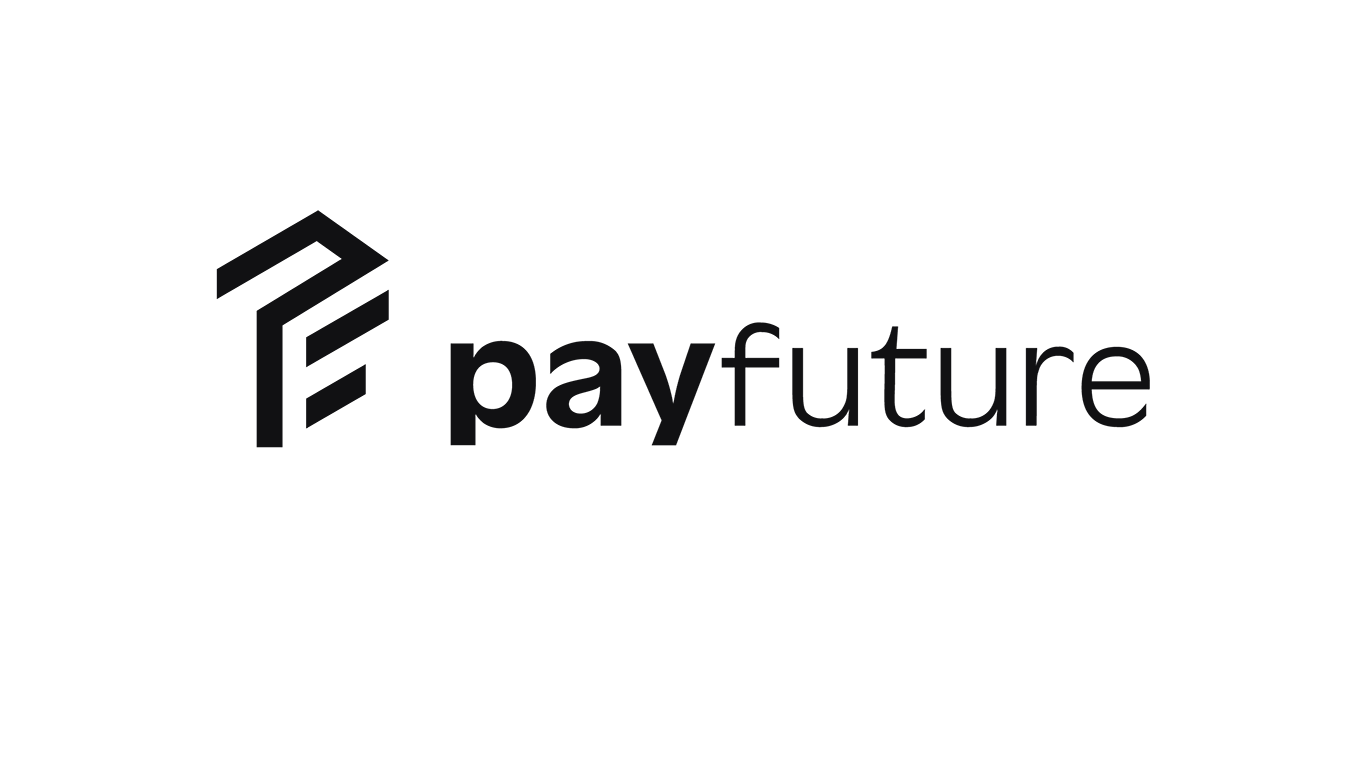Published
- 04:00 am

While some may see ESG as a tick-box exercise, Cogo has found carbon footprint tracker users to be more satisfied with their bank. Many European banks have woken up to this faster than counterparts in other markets around the world by innovating to use data and technology to help customers manage and reduce their impact while also giving them a commercial advantage.
With 24% of banking customers likely to switch if a bank is not doing ESG and Cogo’s carbon footprint tracker users scoring an NPS of 14 points higher* than other customers, the case for carbon footprint management and doing ESG well is clear - avoid it and your customers will become disengaged and more likely to switch.
Emma Kisby, Cogo CEO, EMEA: “Carbon footprint management isn’t a ‘nice to have’ - it is a necessity for banks. We know from our research and work with many European banks that customers increasingly want this. In fact, it has become a real differentiator for customers. Quite simply, customers will switch if they don’t see their bank taking measures to help them address their climate concerns.”
Cogo has found that customers who use a carbon tracker are more likely to recommend their bank to family and friends. So as the fight for customers rages strong, those European banks that are utilising technology and data to tackle the climate crisis have a real opportunity to win the global loyalty race.
Kisby adds: “ Banks have a great role to play in helping to solve the climate crisis given that everyone’s personal impact directly relates to their spending.
“It is far better for banks to take a leadership position on sustainability and the climate. While ESG legislation is tighter in some markets than others, it is an inevitability as climate concerns grow. Those banks in Europe that are on the front foot and doing it well are in a great position, and will be able to use this to help their customers, in turn giving them a commercial advantage in future.”
The benefits of carbon footprint management technology go beyond simply measuring a customer’s carbon footprint. The technology can help banks to engage unengaged customers, cement customer loyalty and shape the customer proposition. The data can also be used to support areas of risk for a bank, such as its mortgage book.
Related News
- 06:00 am

Young Brits are significantly more likely than others in Europe to prioritise digital over physical in-person services when choosing a bank or lender, new research has found.
The findings – commissioned by CRIF, Europe’s leading provider of digital transformation for financial services – found only one in five (21%) of those aged 18-34 in the UK would now choose a bank based on it having a nearby branch.
By contrast, consumers in all other European countries surveyed put access to a branch as their top deciding factor when choosing a bank. Young Italians remain twice as likely as Brits to choose a bank based on this (42%), followed by French (33%), Austrians (31%), German (32%) and Spanish (30%) young people, who all prioritise access to bricks and mortar services.
Highlighting the UK’s shift to digital banking, a quarter (26%) of young people said they would now want a bank that provides them with detailed budgeting and analysis of their spending, while a similar proportion (23%) said they would choose a bank which shows them their credit score without having to leave their banking app. One in five (21%) also want to be able to submit information and documentation digitally rather than in-person or by post.
The stats show a shift in priorities across generations when it comes to choosing a bank or lender in the UK. Having a physical bank branch nearby is still the most important factor when it comes to choosing a bank for those aged 35 and over in the UK.
With the cost of living crisis leaving a third (33%) of young Brits with less money at the end of each month, there is a growing desire among consumers to better understand their financial situation, with many acknowledging the benefits that sharing more of their data with financial providers can bring.
More than four in ten young Brits (45%) said they would be happy to share more of their financial data if it helped them keep track of spending, save more easily and help with credit or loans applications. A similar number of 18-34s (42%) also said they are now comfortable connecting third-party apps to their banking services to help them manage their finances, significantly higher than those aged 35-54 (22%) and over 55s (5%).
Sarah Costantini, Regional Director for the UK & Ireland at CRIF said: “While the cost of living crisis is undoubtedly playing its part, there’s a general trend emerging showing that young people in the UK are leading the way in Europe when it comes to embracing digital and online methods of banking.
“Banks and lenders must now adapt and keep up with this shifting consumer demand, as well as recognising that consumers are becoming increasingly willing to share their financial data if it means that they can better manage their finances. Technologies such as open banking are laying the foundations for not only increased financial support, but tailored financial products and services too.”
The new data forms part of CRIF’s upcoming 2023 Banking on Banks report. It builds on 2022’s report and research, which found people in the UK as nearly twice as likely than other Europeans to prefer applying for financial products and services online over in-person.
Related News
- 03:00 am

Shoptet, the largest provider of e-commerce solutions in the Czech Republic, Slovakia, and Hungary, joined hands with Salt Edge, a leader in offering open banking solutions, to enable immediate payments and money transfers from account to account without the need to use a payment card.
Analysis of the current state of the Czech payment ecosystem and the local e-commerce market demonstrates a significant fintech shift, that is just gathering pace worldwide. Shoptet’s data show that 34% of customers choose account-to-account transfer as a payment method, 31% – cash on delivery, 29% prefer card payments, and only 6% choose cash payment on the spot. And it becomes evident that in the coming years, account-to-account payments can transform the entire market.
Teaming up with Salt Edge and leveraging open banking-powered payments, Shoptet enables more than 30,000 Czech e-shops that use the Shoptet Pay payment gateway, to enjoy an instant payment experience. Salt Edge Payment Initiation solution helps Shoptet to integrate with more than 2,300 banks across Europe to offer merchants an affordable and faster payment option, eliminating the expensive card processing fees from payments. While the Account Information solution will help their merchant clients automatically reconcile payments.
"The advantage of fintech and PSD2-enabled payments compared to current online bank transfers is, among other things, that funds do not go through any intermediary, the transfer takes place from account to account, and this results in considerable acceleration, simplification, and is completely safe. And we’re excited to partner with Salt Edge, being tied by a common goal to foster innovation and to offer the best payment experience." - Ondřej Buben, Head of Shoptet Pay.
"We’ve had with Shoptet an instant match in our goals to ease the lives of merchants and various other businesses, giving them the tools to innovate and grow. Open banking offers this flexibility, and we’re happy to assist Shoptet in empowering its clients with a safe and faster payment solution powered by open banking,"- said Erica Virlan, Vice President at Salt Edge.
Related News
- 02:00 am

UK Trust & Safety platform, Pasabi, has secured a multi-million-dollar investment deal to fund the company’s global expansion.
The Edinburgh-based firm, co-founded by entrepreneurs Chris Downie and Martin Spinks, will use the investment to open a series of business hubs in the US, UK, and Portugal as well as hiring specialist staff across key functions of engineering, product development, sales, and marketing. Pasabi will also develop and launch a new version of its product on AWS Marketplace.
The funding was provided by global technology consultancy VeUP, as part of the company’s €100m growth fund which is designed to support high-potential Independent Software Vendors (ISVs) using Amazon Web Services.
According to data from the World Economic Forum, the fake review epidemic is estimated to directly influence over $152 billion of global online spending every year, putting businesses and consumers at risk. Pasabi’s solution uses AI-powered behavioural analytics to tackle online fraudulent behaviour and identify fake reviews.
Downie recently addressed attendees at the global Marketplace Risk Management Conference alongside spokespeople from Trustpilot, warning delegates about the rising threat posed by online fraud and fake reviews.
Chris Downie, CEO and Co-founder, Pasabi said:
“These are incredibly exciting times for Pasabi, and this investment will allow us to turbocharge our offering, expanding our reach in the fast-growing trust and safety software market at a time when fraud attacks and fake reviews are wreaking havoc online. In the era of Generative AI, people will no longer be able to rely on the authenticity of the content they consume. Only solutions like Pasabi’s, that focus on behaviours over content to detect bad actors, will allow platforms to provide safe environments for their users.”
Alexander Dick, Executive Chairman of VeUP said:
“Pasabi is a powerhouse of technology innovation and the company’s unrivalled solution is set to make waves in the trust and safety software market. We are very excited to announce this new investment partnership and look forward to working closely with Chris and the Pasabi team to accelerate the company’s global expansion.”
Related News
- 09:00 am

VNX, a European tokenization platform, and Lambda256, the blockchain tech arm of South Korean fintech leader Dunamu, signed a partnership aiming to jointly develop global security token offering business. This partnership brings together two industry players from Korea and Europe to offer customers services and access to security tokens and asset-backed tokens across continents.
Leveraging its proprietary blockchain platform, Luniverse, Lambda256 has been swiftly building its business cases in the domestic STO market, utilizing its technology and network. The partnership with VNX allows Lambda256, which has served over 2,000 corporate clients, to leverage VNX’s existing infrastructure and capabilities to provide its customers with a secure, compliant, and efficient platform to address global investor base. Lambda256 will provide blockchain-based technology to VNX, while VNX will be responsible for the operation and compliance guidance.
Through this strategic collaboration, both companies plan to not only expand Lambda256's global STO and VNX's asset-backed tokens business network but also enhance their products.
VNX, is a European company with offices in Luxembourg and Liechtenstein, operates platforms that bring traditional assets to the crypto world. VNX tailor-made solution combines technical infrastructure and integrated services (KYC, compliance, tokenization, etc) helping seamlessly tokenize various assets.
VNX launched its tokenization platform in Luxembourg 2019 and since then has also launched a company registered with the Financial Market Authority (FMA) of Liechtenstein that generates stablecoins backed by physical Gold: VNX Gold (VNXAU) and fiat referencing: VNX Euro (VEUR) and VNX CHF (VCHF), addressing the lack of reliable assets in the crypto world.
As a leading provider of blockchain cloud service platform in East Asia, Lambda256 has been at the forefront of the South Korean STO market. It has established STO businesses with major Korean securities firms such as Shinhan Investment Corp., Yuanta Securities, and Eugene Investment & Securities, following the release of STO regulatory guidelines by the Financial Services Commission of Korea in March.
Jo Won-ho, Head of STO Business at Lambda256, said, "We are pleased to establish a strategic collaboration with VNX, a successful asset tokenization platform operating in Europe. Just like the digital asset market, the tokenized securities business should also consider global markets with significant liquidity from the early stages. Lambda256 is actively preparing competitive technologies and business platforms that can support South Korean STO asset holders and securities firms looking to expand into overseas markets.”
Alexander Tkachenko, CEO and Founder of VNX, commented, "We are thrilled to partner with Lambda256 to jointly develop an unparalleled global STO experience. We aim to leverage existing infrastructure to offer customers access to a wide range of digital assets and services across continents."
Related News
- 09:00 am

Nium, the leader in real-time global payments, today announced the appointment of Manuel Sandhofer as Senior Vice President and General Manager, Europe, following unprecedented growth in the region.
A seasoned fintech industry veteran from Payoneer, Manuel brings to Nium over 15 years’ experience in building teams, leading M&A integrations, and scaling global organisations from seed to IPO.
The appointment will enable Nium to further accelerate its growth in Europe, a region critical to its global success. The fintech unicorn more than doubled European revenue last year with the region contributing to over 40% of the company’s global revenue. Nium serves financial institutions, travel companies, and digital platforms in the region and is experiencing rapid growth. It currently manages over USD 12bn in annualised transaction volume and is expecting to double European revenue again in 2023.
Prior to joining Payoneer in 2021, Sandhofer spent nearly a decade at UniCredit before co-founding Optile, a Munich-based tech company streamlining payment acceptance processes for merchants worldwide. His strategic vision, leadership, and execution culminated in its successful acquisition by Payoneer, after which Sandhofer joined the firm in an SVP Sales and Partners role and saw its transition from a private to public company.
“Despite a challenging macroeconomic environment in Europe, Nium is continuing to hire, sign new customers, expand its product suite, and enter new markets — and I can think of nobody better to spearhead this growth than Manuel,” said Prajit Nanu, Nium CEO and Founder. “As we hire regional GMs across the globe, my goal is to find trusted talent that can act as an extension of myself. Manuel is just that; his experience as a founder brings a proven track record of scaling companies at speed, building and nurturing talented teams, and meeting the payments needs of global enterprise customers.”
Nium plans to expand into Amsterdam later this year, with the goal to open an office and hire over 50 new employees. Last week, the company announced enhancements to its payroll solution which enables global payment platforms and businesses to seamlessly onboard, transact, and manage payroll for employees and contractors worldwide.
“Over the last few years, I’ve watched Nium evolve from a disruptive market entrant into the real-time global payment platform of choice for businesses across Europe. Payments are no longer just the cost of doing business; they are a way to improve performance, create new products and services, and generate revenue. But we’ve only reached the tip of the iceberg when thinking about the opportunity for businesses in Europe, especially when applied to payroll, spend management, marketplace, and travel use cases. It’s exciting to be at the forefront of the real-time payments revolution and unlocking its potential for our customers in Europe and beyond,” added Sandhofer.
Related News
- 08:00 am

Nets, part of Nexi Group, the European PayTech, is launching its new Npay terminal in Finland. The Npay terminal software comes out of the Nexi Digital Finland hub, which was established in February 2023 to drive technological innovation within Nexi Group.
The new terminal technology provides merchants with an easy and versatile solution for accepting payments in physical stores and facilitates payment acceptance through leading card schemes, such as Visa and Mastercard, and is prepared for use with local schemes.
"We are proud that Nexi Digital Finland is already introducing a product from the new Finnish digital hub, designed to drive technological innovation within Nexi Group,” said Matthew Kingsley Rowsell, Chief Product Officer, Merchant Solutions in Nexi.
"Thanks to our team of over 140 innovative developers located in Espoo, Finland, we have successfully designed the Npay terminal to benefit our merchant customers. We see a strong need for pan-European payment solutions like this, and are looking forward to seeing the solution adopted by merchants across Europe," said Ossi Korhonen, Director of Nexi Digital Finland.
Npay has been designed as a pan-European solution, to cater for the majority of merchants’ current and future needs. The solution aims to simplify payment acceptance for merchants and can be implemented on various payment terminal models, since the multi-platform design provides less dependency on specific vendors. Npay terminal distribution will start with SMEs in Finland and Sweden, followed by Nets Partners, and SMEs in Italy.
Suvi Ruoppa, Country General Director of Finland at Nets, part of Nexi Group, said: "The new Npay terminal is a testament to the strong expertise that we have within the Finnish payment technology space, as one of the most digitised societies in the world. We have specialised experience that allows us to continue driving forward the advancement of European payments for businesses and consumers alike. The Npay terminal confirms the ambition of Nexi Group to innovate solutions locally and distribute these technological innovations on a pan-European scale."
Payment solutions company Nets is part of the Nexi Group. The development of the company reflects the evolution of the payments industry in recent years, rapidly becoming more international as companies consolidate to attain further scale. Nets Group and Nexi Group merged in 2021 to form Europe's leading PayTech. Nets Group had already expanded into Finland in 2012 with the acquisition of Luottokunta.
Related News
- 05:00 am

FBS, a renowned international brokerage company, is proud to announce its sponsorship for the upcoming iFX Expo Asia 2023, scheduled for June 20-22 in Bangkok, Thailand. As part of its engagement in the major B2B event, the global fintech organization, FBS, aims to contribute to the success of the Expo and benefit the advancement of Asia’s financial sector.
During iFX Expo Asia 2023, FBS will provide an opportunity to connect with its representatives and share information on the comprehensive range of products and fintech solutions the company has developed over its 14 years in business. As a Silver Sponsor of the event, the CFD trading broker will have its own exhibition booth, which will serve as a hub for insightful expert discussions and one-on-one consultations.
"While FBS operates globally and serves clients from more than 150 geographies, we are excited to be part of the iFX Expo Asia, held this year in Thailand, and demonstrate our many-year expertise in the field," said Ksenia Molodkina, Strategic Marketing Director at FBS. "This event represents a significant platform for us to engage with industry leaders, foster partnerships, and contribute to the growth and development of the Asian financial sector."
iFX Expo is recognized as the world's first and largest business-to-business financial exhibition, bringing together online trading, financial services, and fintech professionals from Europe, Asia, and the Middle East. With over a decade of success, this networking event has become a key meeting place for industry leaders, offering unparalleled opportunities to network with C-level executives from prominent international companies.
FBS will welcome visitors to its booth #3 at iFX Expo Asia 2023, held at the Centara Grand & Bangkok Convention Centre at CentralWorld from June 20 to 22.
Related News
- 04:00 am

As the world turns increasingly towards fully digitized banking experiences, fraudsters are finding new digital lockpicks to crack electronic locks they face when accessing, buying, and exchanging money online. Now, online fraud and financial crime prevention platform, SEON has published its latest ‘Global Banking Fraud Index 2023’, which breaks down the biggest banking fraud trends affecting the market over the past 12 months.
From the specific methods, locations and actions that get employed, as well as the overall impact that fraud is having on the banking sector, SEON’s comprehensive index of fraud threats in the banking sector is now available to read for free on the company’s website. Though most data sourced refers to UK and US sources, SEON’s report also includes insights into fraud trends and neobank adoption rates around the rest of the world.
As the report indicates, the number of monthly fraud attacks on banks earning more than $10 million in annual revenue has shown a consistent increase year-on-year. Likewise, the report highlights that 84% of companies with revenues of $1 billion or more have had more than 100 payment accounts targeted by fraud in the past year. Despite this, only 65% of companies experienced fraud in 2023, which is the lowest rate since 2014.
Speaking on the new report, Tamas Kadar, CEO and co-founder of SEON commented: “It’s been an interesting year for the banking sector, but despite a few bumps in the road there’s clear evidence the industry is moving in the right direction. However, to ensure this momentum can be sustained, those working within traditional banks, as well as neobanks must be highly vigilant around the growing risks associated with fraud.
“If this doesn’t happen, institutions risk monetary and reputational damage because of fraud. This is an ever-present threat, with 71% of financial institutions reporting a security breach from Business Email Compromise last year alone. Thankfully, as well as compiling an index of today’s fraud pain points, companies like SEON are also on hand to provide businesses in the banking and neobanking sectors with new tools to fight back against the fraudsters.”
As with all previous reports, SEON’s ‘Global Banking Fraud Index’ is now available to download and read for free on the company’s website. The document forms part of the company’s comprehensive, and growing content portfolio, which contains articles, case studies and guides that cover a myriad of topics within the world of online fraud and financial crime prevention, as well as cybersecurity.
Related News
- 06:00 am

British fintech payments company PayFuture is today announcing it has been granted an agent Electronic Money Institution (EMI) licence by UK regulator, the Financial Conduct Authority (FCA). With this licence, PayFuture is poised to deliver a comprehensive suite of localised payment products and methods, designed to offer convenience and efficiency in an increasingly digital world. The company's advanced technology platform, combined with its deep understanding of online merchant’s needs, will enable businesses to access untapped markets effortlessly.
The agent EMI licence positions PayFuture as a trusted and regulated entity, enabling the company to issue electronic money, facilitate digital payments, money disbursements and offer a range of other payment services, further enhancing its ability to meet the evolving needs of online businesses.
Founded in 2019, PayFuture has grown from strength to strength every year. It has been a profitable business from the first year and has scaled organically without any external funding. Today, the company offers local payment services in over 40 countries and has helped hundreds of businesses around the world process over $2 billion of transactions. Businesses use PayFuture's proprietary system "Emerging Market Entry Methodology'' (EM2) to accept and disperse payments quickly and seamlessly in emerging markets.
The agent EMI licence represents a culmination of extensive efforts by PayFuture to adhere to the highest standards of compliance and risk management. The regulatory approval underscores the company's commitment to maintaining the utmost transparency and regulatory compliance while providing innovative payment solutions.
The agent EMI licence achievement comes hot on the heels of PayFuture launching 11 direct solutions in new countries within just the past 6 months, as well as becoming PCI Level 1 compliant which is the highest level of compliance and payment security standards merchants can comply with to securely store, transmit, and process credit card information. This progress represents significant leaps in the company's mission to transform from being a payments technology platform to becoming the largest payments processor supporting businesses looking for local payment options across the world's emerging markets.
"We are delighted to have been granted the agent EMI licence, a significant achievement that showcases our dedication to excellence in the payments industry," said Manpreet Haer, CEO and Co-Founder of PayFuture. "This milestone is a testament to our team's quality and hard work, as well as our unwavering commitment to providing solutions that have previously not been available to merchants, resulting in net new profits for them. We are excited to continue pushing boundaries and revolutionising the way people do business in underbanked emerging markets”.
The agent EMI licence marks a pivotal moment in the company's growth trajectory, as it expands its reach and strengthens its position as the leader in payments within frontier markets.









